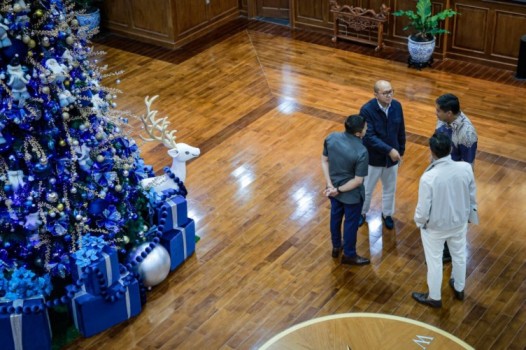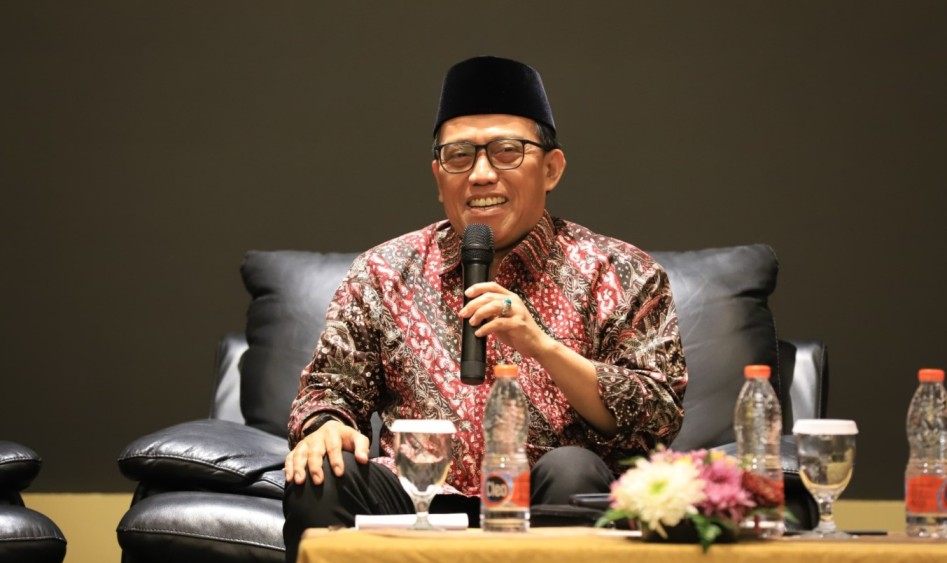Significance of Indonesia, Sweden defense cooperation agreement 2020

On September 30, 2020, Commission I of the Indonesian House of Representatives (DPR RI) agreed to ratify the Memorandum of Understanding (MoU) on Indonesia-Sweden Defense Cooperation.
The process took nearly four years and provided a great opportunity for both countries to understand each other.
Though Indonesia, like many countries in the region, is caught between the United States’ and China’s struggle for influence, in the eyes of Sweden, Indonesia is a country in the forefront of non-aligned affairs.
Indonesia shares many points in common with Sweden, particularly in their non-alignment characteristics.
During my time as Ambassador to Sweden, I felt that Sweden’s sentiment on Indonesia’s non-alignment stance was even stronger, noting that Indonesia is seen as the ‘anchor’ of ASEAN.
Significance of Sweden for Indonesia
Historian Bruce Hopper once noted that to see the ambition of a country, one must first check its track record.
Despite having a formidable military force in the 17th century and being one of the largest arms producers in the world, Sweden was never involved in a world war.
Even during World War II, Sweden maintained its official policy of being neutral in its foreign policy.
Despite its neutral policy, Sweden participated in humanitarian efforts and accepted refugees from German-occupied Europe.
After the end of the Cold War, Sweden joined the European Union on January 1, 1995, yet it rejected NATO membership.
RI and Sweden
In the MoU, defense cooperation between Indonesia and Sweden includes seven points, as follows.
First, the exchange of information and experiences on issues of mutual interest related to political, military and international maritime security issues.
My note regarding that matter is that in the understanding of the Indo-Pacific carried out in 2019, the Swedish think-tank ISPD (the International Security and Development Policy) acknowledges three opportunities that Sweden can further explore, which includes cooperation to fulfill the United Nations Sustainable Development Goals (2020-2030), maritime cooperation and economic cooperation.
Second, exchange of information and best practices, and promoting cooperation between agencies of the two countries in scientific research, development and other related institutions.
In the last few years, I noticed that Indonesia’s Defense University (locally called Universitas Pertahanan Indonesia) conducted working visits to Sweden, following the mutual visits of the Swedish Defense Minister and the Indonesian Defense Minister in 2016 and 2017.
Third, development of cooperation and exchange of experiences related to logistical support and maintenance on the basis of mutual benefit and agreement from the parties. This issue requires critical attention because logistical support and maintenance are important issues for both parties.
Fourth, support for the development of cooperation in the defense industry which includes technology transfer, joint research, joint production, joint marketing and quality assurance.
From my observations, Indonesia’s aircraft manufacturer PT Dirgantara and Indonesia’s enterprise specializing in military and defence products PT Pindad can cooperate with Swedish weapons industry companies. This concerns strengthening our strategic industries.
In addition, Indonesia also has a joint procurement of cannons for warships produced by PT PAL Indonesia (military and civilian ship manufacturer) with the defense equipment company BOFORS, whose branch is in the city of Karlskoga.
Procurement for a number of warships is ongoing and after completion of production it is hoped that technology transfer will be carried out to the Indonesian Navy.
Fifth, development and enhancement of military training at all levels, including civilian personnel in the Ministry of Defense.
Between 2018-2019, SAAB, a Swedish defense equipment company in collaboration with the Swedish Ministry of Defense, provided training for the Indonesian Armed Forces (TNI) officers in the field of Long-Term Defense Planning which took place in Sweden.
There was also the 2013 SAAB Scholarship program, and had been applied from 2015 to 2019.
Sixth, the development of activities that lead to military medical and health activities. It seems that it is appropriate to open cooperation in the field of military health personnel, especially during the COVID-19 pandemic.
Seventh, other mutually agreed upon cooperation. What needs to be paid attention is cooperation in the U.N. Peacekeeping Force.
Indonesia and Sweden are troops contributing countries for the U.N. Peacekeeping Force. The specialty of these two countries is that they each prioritize gender equality and their approach to people in conflict areas.
The Indonesian Embassy in Stockholm has collaborated with the leading think-tank Institute for Security and Development Policy (ISDP) in organizing the ASEAN Outlook on the Indo-Pacific seminar in November 2019.
The speaker of the Seminar was Ambassador Soemadi Brotodiningrat, former Indonesian Ambassador to the United States and Japan. He was also the Indonesian Permanent Representative of Indonesia to the U.N. and other international organizations in Geneva.
The objective of the seminar was to disseminate the concept of the ASEAN Outlook on the Indo-Pacific which was initiated by Indonesia, to obtain input/responses from various friendly countries regarding the concept and to obtain descriptions regarding current developments, particularly in the issue of geopolitics and international trade.
I was so delighted that the seminar received positive response from Sweden and other countries.
Conducting seminars like that is very useful for garnering support from friendly countries, exposing various positions in Indonesia, especially in various Swedish government institutions and other friendly countries and for getting lots of input from Swedish think tanks that have international reputation.
There has been a rapid increase in Swedish investment into Indonesia in the last four years (2016-2020), from 4.4 million U.S. dollars in 2016 to 26.3 million U.S. dollars in 2019, or an increase of 500 percent (source: Indonesia’s Investment Coordinating Board, April 2020).
Indonesia should continue to explore Sweden’s cooperation in research and development, innovation, Internet of Things, technology transfer, and transparency.
Finally, I am convinced that the government of the Republic of Indonesia and Commission I of the Indonesian House of Representatives (DPR RI) had the wise decision and are fully cognizant with the urgency of drafting the bill on defense cooperation between Indonesia and Sweden.
Author: Bagas Hapsoro [RI’s Ambassador Extraordinary and Plenipotentiary to the Kingdom of Sweden concurrently the Republic of Latvia (2016-2020)]

.jpg)








